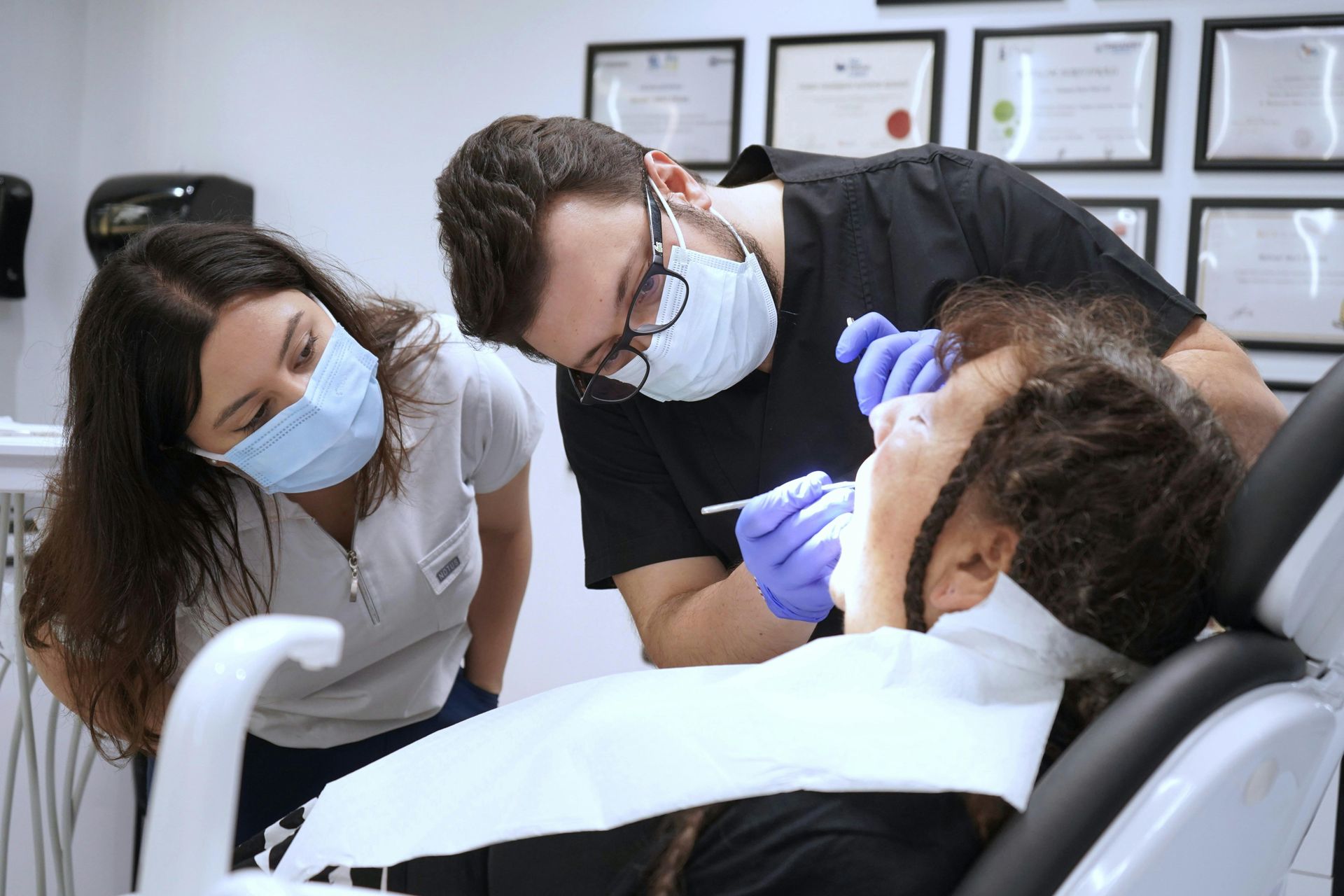Selling a Dental Practice
USDT understands you have unique goals and requirements for the sale of your dental practice. Our process minimizes the time you need to take away from practicing dentistry while selling your business.
Preparing to Sell a Dental Practice
Before selling your dental practice, there are a few factors to consider that will help USDT package and market your practice. Our experienced dental office transition advisors will work closely with you to determine your goals for the sale to ensure a smooth transition for you, your staff, and your patients.
Practice Productivity Trend
Number of Dental Offices Nearby
Transferability
Years in Practice in the Area/Location
FAQs on Selling a
Dental Practice
-
How long does it take to sell a dental practice?
It can take anywhere from several months or even up to several years to sell a dental practice. Some factors that determine how long it takes to sell a practice include its condition, location, price, and the number of dental operatories. The more desirable the practice, the faster it will sell.
-
How can I sell a dental practice quickly?
Dental practices sell fastest when sellers start early, set realistic expectations about the value of their practice, and keep all equipment and facilities up to date. The best way for you sell a dental practice quickly is to contact a dental transition consultant or a dental practice transition advisor — experienced in all kind of sales, including mergers and acquisitions.
-
How much can you sell a dental practice for?
How much you can sell a dental practice for depends significantly on the valuation method used, including a dental practice valuation calculator, and the current market. Selling prices are also influenced by the number of dental operatories, as well as the location and condition of the building and equipment.
-
Is it possible to sell portions of my dental practice?
Yes, but you should only consider this if your practice is large enough to support more than one doctor, and that your internal growth potential is at least between 30%-50%. If you are unsure of your practice’s internal growth potential, you should contact a dental practice transitions consultant to get an in-office analysis.
-
What are the tax implications or consequences of selling a dental practice?
You should expect to pay both federal and state income taxes on the gain of selling your practice, which is calculated as the difference between the sale price and the tax basis in the sold property. Tax basis is the amount of your capital investment in the property for tax purposes, specifically.
If your practice is listed as a Regular “C Corporation”, all income from the sale is taxed at the federal corporate rate of 34-35% for income greater than $335k/year. However, if your practice was set up as a regular partnership (LLC or LLP) or a sole proprietorship (“S Corporation”), a sale means both ordinary and capital gains are paid by the owners on their personal income tax returns.
For practices sold in states with no state income taxes (Florida, Tennessee, Texas), there is no state tax implication.
-
What are dental practice valuation methods?
Valuation methods include rule of thumb, market approach, and cap rate. Each dental practice valuation method uses different factors to determine an estimated value, and one method might be better than the next based on your specific practice.
- Rule of Thumb is a great starting place to get an idea about what your practice is worth. Rule of thumb uses past and future market trends to provide a wider perspective on the dental practice valuation process.
- Market Approach assesses major market factors including location, profitability, selling financing, and equipment age.
- Cap Rate Method relies on a valuation of the risk factors that go into investing in a dental practice versus other investments.
Resource Articles for Sellers
GUIDING YOUR TRANSITION
USDT ROADMAP
TO SUCCESS
Selling your dental practice is an emotional decision, and the process isn’t as simple as posting a “For Sale” sign. Since 1998, the experts at USDT have been guiding dentists through the complexities of selling their practice. Learn more about our process.
Seller Contacts USDT
Initial information is gathered from the seller, so we know which Transition Advisor to assign. The Advisor schedules a 30-minute consultation to discuss market conditions, learn the seller’s goals, and discuss what to expect the value of their practice to be. To prepare the doctor and the Advisor for the on-site meeting, we will send the doctor a high-level Practice Summary sheet. This information will provide the Advisor some details on what the selling doctor expectations are for the transition.
On-Site Visit
The on-site visit allows the doctor and the Transition Advisor to meet so the Advisor can tour the office, take photos of the practice, answer any questions, and explain what’s required to take the practice to market. In addition, this is an important time for the doctor to explain their treatment and practice philosophy and discuss the doctor’s team members. Most importantly, the Advisor wants to understand the doctor’s goals, so they can work together to build a transition plan. As an example, is the doctor looking for a short transition or would they like to continue to work in the practice?
Valuation Process
US Dental Transitions requires a completed Practice Summary packet, 3 years of Tax Returns/Financials, and a Production by Procedure Code report. Once we receive this information, it will take approximately 7 business days to complete the core components of the practice valuation.
Co-Author & Advertising
Your Transition Advisor will draft the advertisement and review the ad with you prior to it being published. Ads are published on various sites/journals. In addition, we will contact doctors who have previously requested information for the area via email, phone calls, and other marketing efforts. We have a database of over 125,000 dentists.
NDQ for potential Buyer
All buyers are required to sign a non-disclosure questionnaire prior to seeing or discussing any practice data. For larger practices, buyers may need a bank pre-qualification prior to sharing confidential information.
Location Tour & Buyer/Seller Introduction
We will introduce the seller and the buyer, tour the office, and discuss the practice and seller’s philosophy. If the buyer is interested, a Letter of Intent (LOI) is drafted and presented to the seller. If the LOI is accepted, the buyer’s due diligence period begins. Simultaneously, there is a contract term agreement, formal bank approval, and other
Closing & Transitioning
Since every practice transition is different, your Transition Advisor will provide recommendations based on your specific situation. You will be guided through this process with suggestions on how to transfer relationships with staff and patients to the new provider to ensure a smooth transition.
Ready to
Get Started?
Contact USDT
Submit your request and we'll get back to you soon.
We will get back to you as soon as possible
Please try again later
CONTACT US
4411 Suwanee Dam Road, Suite 420
Suwanee, GA 30024
USEFUL LINKS
STAY INFORMED
You need a helping hand with your project?
We will get back to you as soon as possible
Please try again later



